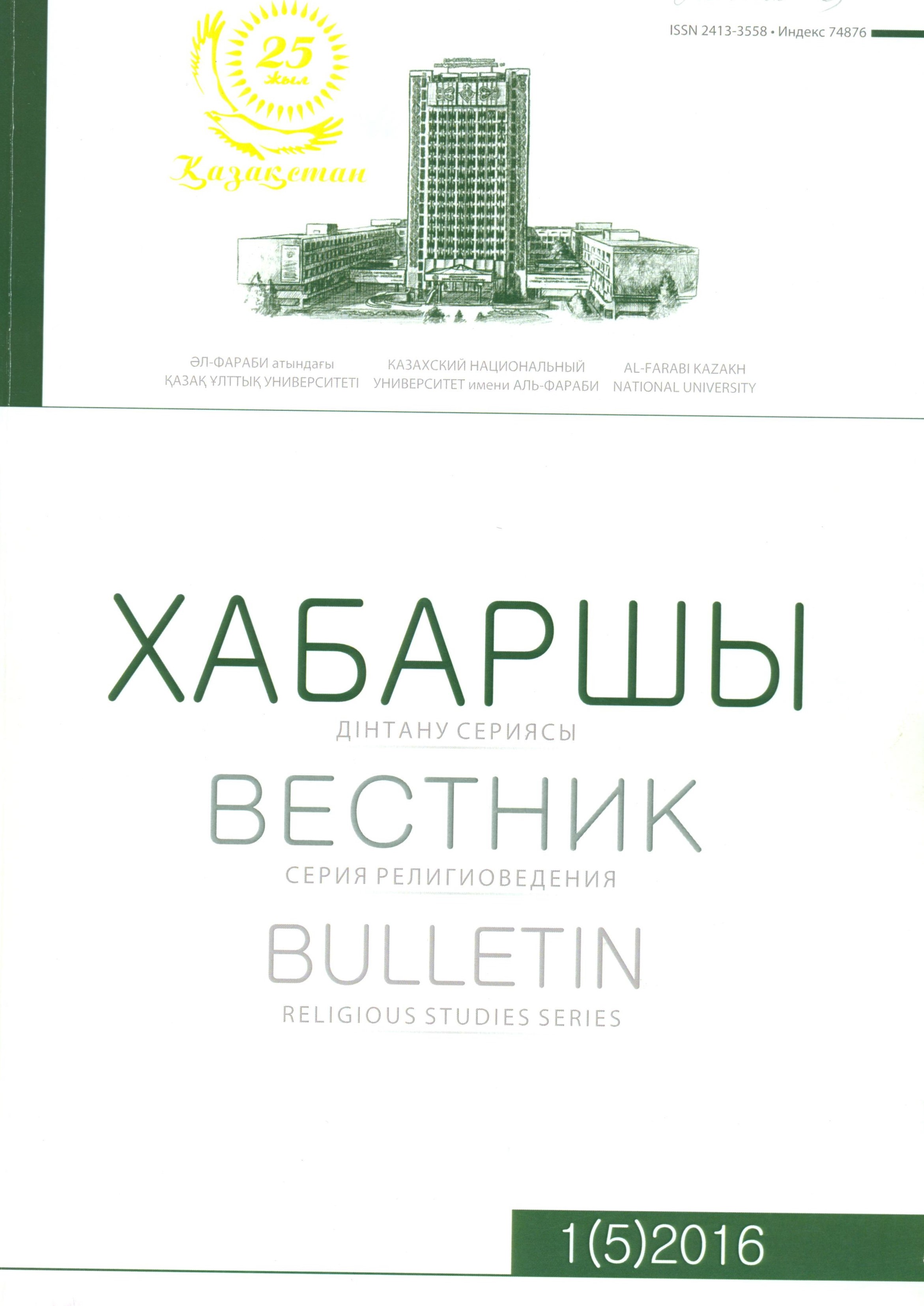On salafismas a crisis theology and social movement
An Analysis on Salafi Ideology and It’s Impacts on The Muslim World
DOI:
https://doi.org/10.26577/EJRS-2016-1-174Abstract
Modern salafi movement defends concept of return to essence/origin and refuses all of new or old identities in Muslim World. To salafism, everything was not be mentioned in the golden age (in Islamic literature is alAsr asSaadah) is inevitably herecy and Islamic sects (mazahib) are heretic roads. Salafist thinkers don’t use the concept of mazhab; they prefer salafi and says that it was no mazhab in the salaf age, and they have no mazhab. Thus, salafism rejects the theological and philosophical accumulation of Muslim world radically and it means the theological essentialism. The most influenced structure in Muslim World is Sunnism by rising of salafism. Due to it’s eclectic and surroinding structure, today Sunnism suffers from representation crises. Salafism strongly claims that it has truth of Sunnism. On the other hand salafism as a political movement, destroyes the political balances and destabilizes the Muslim World. Additionally, salafism as an anticulturalist movement, blesses the badawism and fights the cultural richness and historical heritage. Therеfore despite of it’s theological and archaic discourse salafism is a modern political movement. The aim of this article is to prove the basic structure of salafi mind and discuss it’s main arguments.
References
2 İbni Teymiyye el-Harrânî, el-Akîdedu’l-Vâsitiyye ve İhtiva Ettiği Yüce Mebâhise Dair Tenbihât, şerh: Abdurrahman b. Nasır es-Sa’dî, talik: Abdulaziz b. Abdillah b. Bâz, çev. Hüseyin Cinisli, İstanbul, 2013
3 İbni Teymiyye, Minhâcu’s-Sünnet’i-Nebeviyye, Kahire, 1986
4 İmam-ı Azam Ebu Hanife, İmamı Azam Ebu Hanife ve Eserleri, “Osman el-Bettî’ye Yazdığı Risale”, çev. Abdulvvahhab Öztürk, İstanbul, 2012
5 İslam Ansiklopedisi, ‘Selefîyye’ md., cilt 36, İstanbul 2009
6 Muhammed b. İbrahim el-Hamed, Ehl-i Sünnet’in Seçkin Özellikleri, çev. Serkan Özgül, İstanbul, 2007
7 Muhammed bid el-Câbirî, Arap-İslam Siyasal Aklı, çev. Vecdi Akyüz, 2. Baskı, İstanbul, 2001
8 Mehmet Evkuran, “İslam’da Eşitlik ve İtibar Talebinin Teolojik Dili- Mukallidin İmanı ve İmanda İstisna Tartışmalarının Sosyo-politik ve Kültürel Bağlamı”, Uluslararası İmam Maturidi ve Maturidilik Sempozyumu, http://www.bilgelerzirvesi.org/bildiri/maturidi/Prof-Dr-Mehmet-EVKURAN.pdf
9 Mehmet Evkuran, Sünnî Paradigmayı Anlamak-Bir Ekolün Politik ve Teolojik Yapılanması, Ankara, 2. Baskı, 2015
10 Mehmet Zeki İşcan, Selefîlik-İslamî Köktenciliğin Tarihî Temelleri, 2. Baskı, İstanbul, 2009
11 Osman Ali Hasan, Kavâidu’l-İ’tikâd alâ Mesâlihi’l-İtikâd, Dâru’l-Vatan, 1992
12 Süleyman Uludağ, İslam Düşüncesinin Yapısı, İstanbul, 1976
13 eş-Şemsu’s-Selefî el-Efgânî, A’dâu’l-Mâturidiyye li’l-Akîdeti’s-Selefîyye, Peşaver, 1998
14 Sefer b. Abdurrahman el-Havalî, Mürcie İnancı ve İslam Ümmeti Üzerindeki Kötü Tesirleri, çev. Ebu Abdurrrahman Azadi, İstanbul, 2012
15 Tarihte ve Günümüzde Selefîlik, Ed. Ahmet Kavas, Ensar Yayınları, İstanbul 2014




